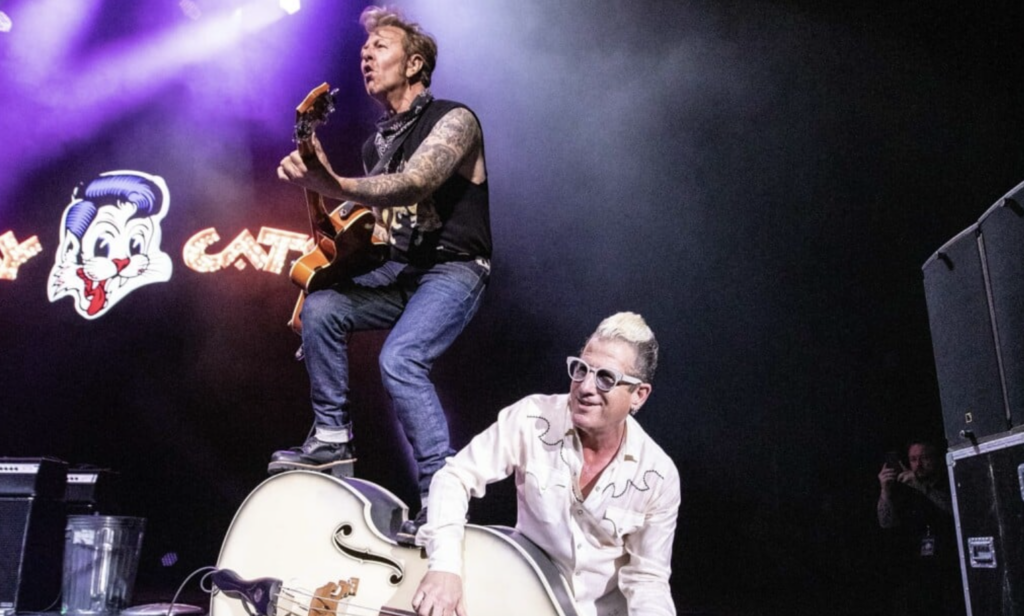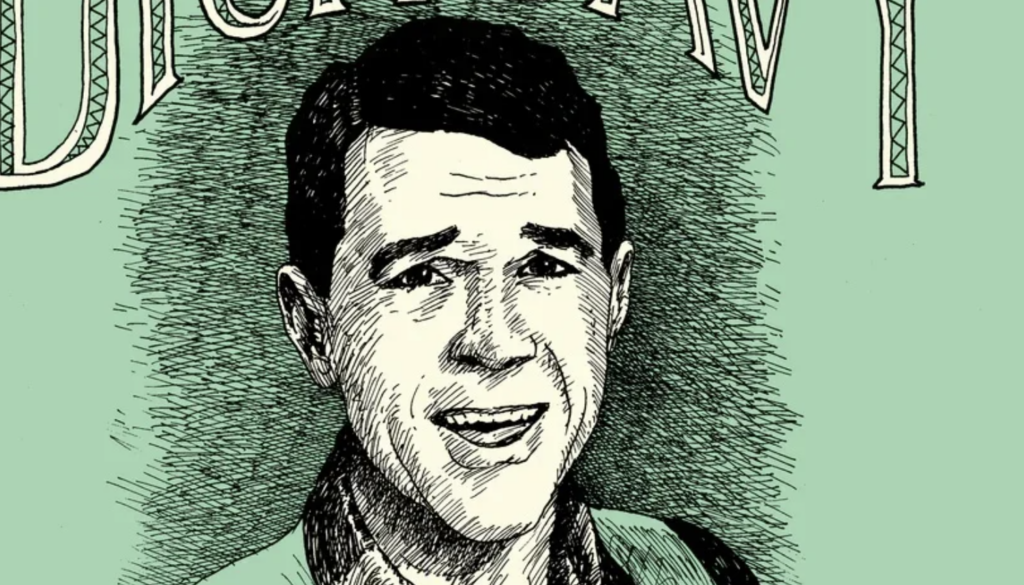The Invisible Hand, at the Rep, markets big ideas

Thank libertarians for keeping “the invisible hand” of the free market alive 240 years after its genesis.
Thank playwright Ayad Akhtar for extending an invisible middle finger to that ideal.
Akhtar’s latest script, The Invisible Hand, follows Citibank trader Nick Bright after his kidnapping by a Pakistani religious sect. The sect’s leader, the soft-spoken Imam Saleem, swears he and his men aren’t terrorists. The U.S. government disagrees. Which means: no way in hell they’re negotiating with Saleem, or paying the $10 million ransom he’s set for Nick.
Homesick and wounded, Nick begs Saleem to let him earn his own ransom by trading on the stock exchange. The imam reluctantly agrees — with two conditions. One, Nick must take on his second-in-command, Bashir, as an apprentice. Two, he must amass the full $10 million in less than a year.
It goes without saying that Nick and Bashir’s trades are neither strictly legal nor sanctioned by Islam. As the cash starts rolling in, predictable themes emerge. Power corrupts. Greed begets greed. Money becomes its own religion.
But there’s nothing pat about Akhtar’s characters — or the Kansas City Repertory Theatre’s creative staging. Akhtar has a singular gift for capturing (without condescension) humanity’s maddening contradictions. And director Jerry Genochio has assembled a cast capable of embodying them.
As Nick, Jason Chanos turns in an understated performance that approaches genius. Dramatizing computer clicks can be challenging, but Chanos’ brittle impatience makes short-selling as riveting as a barroom brawl. In these scenes, his desperation melts away, replaced with confident elation. More crucially, Chanos has a firm grasp on the self-delusion that allows Nick to distance himself from his captors. A scene in which Nick pressures Bashir for an information “edge” (and waves off the obvious interpretation) stands out — and hangs like a ghost over the play’s finale.
Rock Kohli is at turns chilling and lovable as the intense Saleem. Rarely does the imam lose his patience; when he does, the anger feels more acute in Kohli’s gentle cadence and gravelly voice. And Neal Gupta is effective in a small role as the prison guard, Dar, though his flawless intonation can occasionally make the character’s broken English ring false.
Andrew Guilarte gives a volatile performance as Nick’s unlikely partner, the London-born ideologue Bashir. The actor masters the manic energy and short-fuse fury of a man who constantly fears he’s the punch line. His chemistry with Chanos keeps us invested in their relationship; his curious read on integrity keeps that relationship from curdling into cliché.
But Bashir is also the play’s most frustrating character, as complex in Act I as he is contrived in Act II. In the play’s final scenes, Akhtar sands down Bashir’s rough spots to fit a prefabricated reversal; at Sunday night’s performance, I wondered whether a crucial motivating scene or monologue had been skipped.

One of the central challenges of a play about financial markets and geopolitics is the ignorance of its audience. In the first act alone, Nick teaches Bashir about call and put options, futures markets, the volatility of the rupee, and Bretton Woods. In less capable hands, all of this might read like Cliffs Notes for a macroeconomics textbook. But it works because Nick’s explanations are always doing two things at once. His words aren’t idle monologue but rather pleas for his life. He is convincing because he has to be. Information is the only currency available to him.
Genochio keeps the action taut throughout. Although Nick spends much of the play shackled or chained to his bed, the blocking never feels stagnant. Well-choreographed fight sequences (courtesy of fight director John Wilson) amplify the tension; so do Andre Pluess’ sounds and compositions, from offstage effects (the yelp of guard dogs, the crunch of gravel, the sickly hum of American drones) to rhythmic music interpolating Middle Eastern figures with Wall Street bells and whistles.
Martin Andrew’s stunning prison set narrows as it travels upstage, making Nick’s roomy quarters feel claustrophobic. Crumbled stone walls, faded floor tiles and a jagged stage apron complete the effect. Elizabeth Harper’s lights effectively evoke both stark moonglow and nearby drone strikes, and Jeffrey Cady’s projections — for both the set walls and a stock market ticker below the stage — keep the play’s short scenes distinct and focused.
But the star of the show may be Melissa Torchia’s costumes, which evolve along with the characters. As Saleem becomes seduced by Nick’s profits, his plain white kurta and sandals are gradually replaced with bejeweled tunics and silk slippers. Meanwhile, Nick’s clothes grow grimier in each scene, as though his captors’ sins are sullying him by proxy.
And they are. Although Bashir assures Nick more than once that “there’s no blood on your hands,” we (and he) grow less certain with every scene. Self-interest might work for markets, but in the real world it comes with collateral damage.
Way back in 1776, Adam Smith’s The Wealth of Nations described a man “led by an invisible hand to promote an end which was no part of his intention.” Akhtar’s play is proof positive of the concept. But our bare intentions, he reminds us, amount to precious little in the end.
The Invisible Hand
Through November 13 at the Kansas City Repertory Theatre’s Copaken Stage, 13th Street and Walnut, 816-235-2700, kcrep.org




